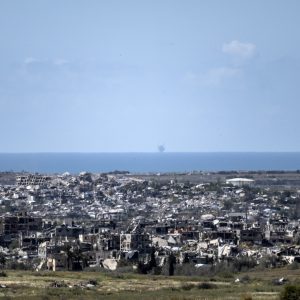Saudi Arabia demands end to Israel’s occupation of Palestinian lands
ANKARA (AA) – Saudi Arabia on Tuesday called for ending the decades-long Israeli occupation of Palestinian lands, deeming it “illegal.”
“Israel’s actions indicate that it has no intention of making peace,” Saudi Ambassador Ziad Al-Atiyah told a hearing at The Hague-based International Court of Justice (ICJ).
He said Israel has made it impossible to establish a Palestinian state by annexing more than two million dunums of land and building more than 279 illegal settlements in the West Bank.
“The Israeli occupation is illegal and must be ended without conditions,” he added.
Al-Atiyah said Israel’s rejection of the two-state solution shows its intention to deprive the Palestinian people of their right to their own state.
“Israel has committed the most egregious violations of its fundamental international obligations regarding its treatment of the Palestinians,” he added.
On Monday, Palestinian Foreign Minister Riyad al-Maliki urged the top UN court to terminate the Israeli occupation and deem it “illegal” as the court opened its hearings into the legality of Israel’s occupation of Palestinian territory.
In December 2022, the UN General Assembly passed a resolution calling on the world court to give an advisory or nonbinding opinion on Israel’s 57-year occupation of Palestinian territories.
At least 50 countries will present their arguments regarding the legality of the Israeli occupation in the Palestinian territories, according to the court.
Israel is also accused of genocide at the ICJ, which issued an interim ruling in January ordering Tel Aviv to stop genocidal acts and take measures to guarantee that humanitarian assistance is provided to civilians in Gaza.
Israel has launched a deadly offensive on the Gaza Strip following an attack by Hamas on Oct. 7. The ensuing Israeli bombardment has killed nearly 29,195 and injured about 69,170 with mass destruction and shortages of necessities.
The Israeli war on Gaza has pushed 85% of the territory’s population into internal displacement amid acute shortages of food, clean water and medicine, while 60% of the enclave’s infrastructure has been damaged or destroyed, according to the UN.









